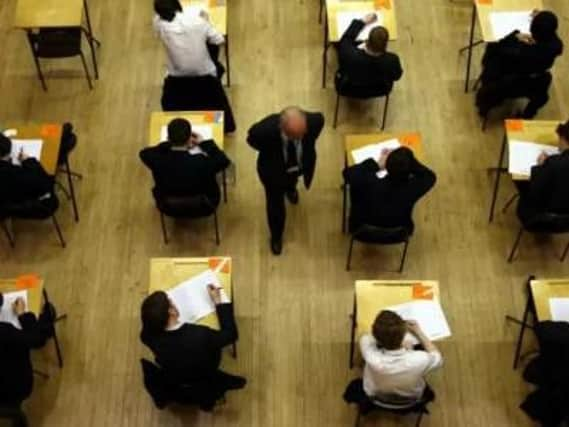Government 'yet to prove the case' for new grammar schools


In a new report, the influential Education select committee argues there is too little evidence to support the key claims that more selective schools will help to close the attainment gap between poorer and better-off pupils.
The group also casts doubt on the ability of schools to develop a "tutor proof" entrance test that does not disadvantage children whose family cannot afford training.
Advertisement
Hide AdAdvertisement
Hide AdAnd they have recommended an urgent review of the impact new grammar schools would have on the health of the wider education system, given existing challenges around funding and the supply of teachers.
The report, published today, follows last year's revelation that under Theresa May's leadership, the Government was planning to lift the ban on opening new state-backed selective schools.
Initially exposed in a leaked document, the policy was later confirmed as forming part of a wider agenda aimed at driving up standards across the education system and improving opportunities for children from disadvantaged backgrounds,
Ministers have dismissed suggestions that the policy will not mark a return to the "two tier" system of the 1950s, arguing it will instead see selective institutions working with other local schools to boost academic performance.
Advertisement
Hide AdAdvertisement
Hide AdThey have also pledged to widen access to grammar schools among poorer pupils, including through engagement and outreach programmes and "smarter" testing to remove the advantages for families who can pay for tutoring.
However, following its recent inquiry, the committee notes that a number of educational experts have expressed "scepticism" about the influence of grammar schools in improving attainment
It claims the current evidence to suggest pupils from lower socio-economic backgrounds do any better in selective - as opposed to mainstream - schools is "weak".
The group also argues that entrance testing should not be the "only basis on which admissions to grammar schools are based".
Advertisement
Hide AdAdvertisement
Hide Ad"The Government has yet to demonstrate how an admissions system could be designed in a manner which would be immune to gaming, or being reduced to the ability to pay," it says.
Commenting on the report, committee chairman and Tory MP Neil Carmichael said: "The Government has yet to prove the case for opening a new wave of grammar schools.
"The Prime Minister rightly talks of making Britain a great meritocracy. [But] if the Government wants to push ahead with new grammar schools it must demonstrate how this aids social mobility and improves educational outcomes for all, most especially those from disadvantaged backgrounds.
“The focus on opening new grammar schools is, in my view, an unnecessary distraction from the need to ensure all our young people are equipped with the skills to compete in the modern workplace.
Advertisement
Hide AdAdvertisement
Hide Ad"A broadly skilled workforce is crucial to the future success of the UK economy. If the Government is committed to increased specialisation in our education system then they should spell out how this meets the aims of the Industrial Strategy and the goal of an economy that works for all."